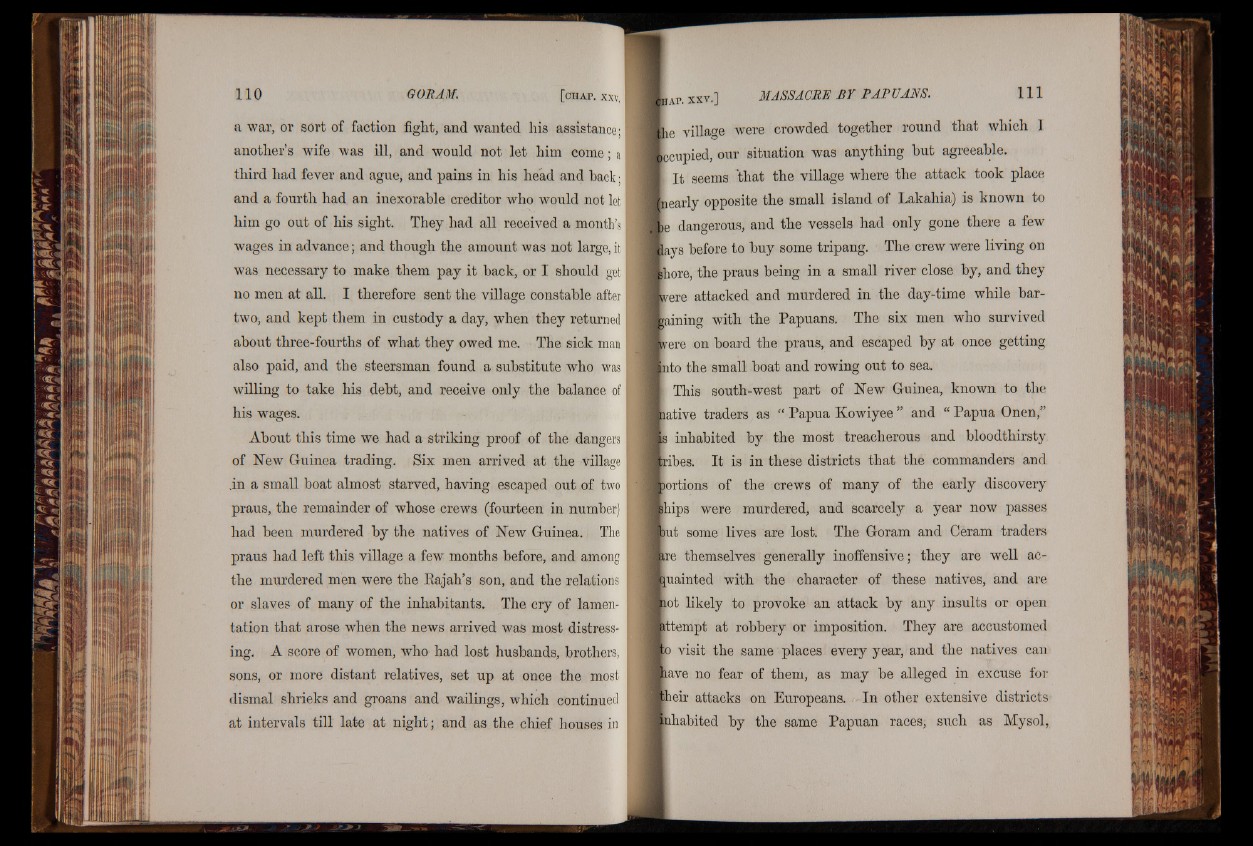
a war, or sort of faction, fight, and wanted his assistance;
another’s wife was ill, and would not let him come; a
third had fever and ague, and pains in his head and hack -
and a fourth had an inexorable creditor who would not let
him go out of his sight. They had all received a month’s
wages in advance; and though the amount was not large, it
was necessary to make them pay it back, or I should get
no men at all. I therefore sent the village constable after
two, and kept them in custody a day, when they returned
about three-fourths of what they owed me. The sick man
also paid, and the steersman found a substitute who was
willing to take his debt, and receive only the balance of
his wages.
About this time we had a striking proof of the dangers
of New Guinea trading. Six men arrived at the village
,in a small boat almost starved, having escaped out of two
praus, the remainder of whose crews (fourteen in number)
had been murdered by the natives of New Guinea. The
praus had left this village a few months before, and among
the murdered men were the Rajah’s son, and the relations
or slaves of many of the inhabitants. The cry of lamentation
that arose when the news arrived was most distressing.
A score of women, who had lost husbands, brothers,
sons, or more distant relatives, set up at once the most
dismal shrieks and groans and wailings, which continued
at intervals till late at night; and as the chief houses in
|he village were crowded together round that which 1
Iccupied, our situation was anything but agreeable.
I It seems that the village where the attack took place
■nearly opposite the small island of Lakahia) is known to
joe dangerous, and the vessels had only gone there a few lays before to buy some tripang. The crew were living on
ihore, the praus being in a small river close by, and they
Iwere attacked and murdered in the day-time while bargaining
with the Papuans. The six men who survived
Iwere on board the praus, and escaped by at once getting
Into the small boat and rowing out to sea.
I This south-west part of New Guinea, known to the
mative traders as “ Papua Kowiyee ” and “ Papua Onen,”
Is inhabited by the most treacherous and bloodthirsty
Iribes. It is in these districts that the commanders and
¡portions of the crews of many of the early discovery
■hips were murdered, and scarcely a year now passes
laut some lives are lost. The Goram and Ceram traders
lire themselves generally inoffensive; they are well acquainted
with the character of these natives, and are
■not likely to provoke an attack by any insults or open
iattempt at robbery or imposition. They are accustomed
lo visit the same places every year, and the natives can
■lave no fear of them, as may be alleged in excuse for
their attacks on Europeans. In other extensive districts
inhabited by the same Papuan races, such as Mysol,